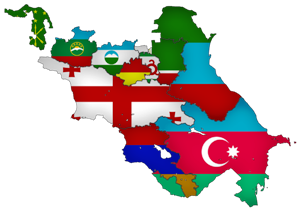 Armenia has recently had a national referendum, one whose contents and the results of which have been heavily debated. The referendum — which was aimed at bringing about constitutional changes that would decrease the authority given to the president while increasing the power of its parliament — was met by a 63 percent “yes” vote. One half of eligible Armenian voters chose to vote.
Armenia has recently had a national referendum, one whose contents and the results of which have been heavily debated. The referendum — which was aimed at bringing about constitutional changes that would decrease the authority given to the president while increasing the power of its parliament — was met by a 63 percent “yes” vote. One half of eligible Armenian voters chose to vote.
In the period before the referendum took place, there were many events marked by the opposition’s strong opposition to the proposed constitutional change. The reason for the strong opposition to the proposed changes is rooted in the proposal to strengthen the position of current President Serzh Sarksyan, whose term is slated to come to an end in 2018. Worries are already being voiced that Sarksyan, who would not be able to be president for the third time in a row, would try to remain in a powerful position through the role of prime minister. It does appear that the proposed constitutional changes would turn the office of the president into a much more symbolic one than it is now.
The opposition groups protesting the referendum results in Yerevan made note of illegalities during voting, which include stolen votes and the use of violence. But in the end, the voiced protests and reports from international observers seemed stale and without energy compared to pro-government talk of a “New Armenia.”
In the meantime, statements from Sarksyan have consistently underscored how important the results from the referendum are for the country’s democracy; the president has also said that those who voted “no” on the referendum should see themselves as constituting a different front.
Sarksyan has also said the new election system would be implemented within a year in Armenia and that the country needs to be assured that the 2017 parliamentary election will take place in an atmosphere of security.
The Armenian opposition, which characterizes the country’s current parliament as the “business club” for the nation’s oligarchs, has been very vocal about the belief that nothing will change, even with a new constitution. The fact that the oligarchic-political circles have tightened their support for Sarksyan does in fact demonstrate that the “New Armenia” will not look so different from the old Armenia.
It appears now that even if the constitution is reformed in Armenia, there will be new domestic as well as foreign political crises. The reason for crises at home would be the reduction in Sarksyan’s power in the short term — no matter what the cost — and then his total withdrawal from the political stage after 2018.
In the meantime, the Armenian opposition forces, which have for years carried out demonstrations against those in power and which have managed to create great synergy by drawing large crowds to the city centers, are still in many ways insufficient.
As far as Sarksyan is concerned, his tendency remains to see how he can benefit, even from processes of political crisis like the current one. He will make it his business to see that if he doesn’t remain at the helm, that at least it will be someone under his control who does. Things like political assassinations, new clashes in Nagorno-Karabakh and undertaking road expansionism through the Caucasus and into Russia will increase Sarksyan’s power.
Even when the referendum results were being released, all eyes were on the clashes between the Armenian and Azerbaijani forces, which has turned into a well-used tactic that Sarksyan might decide to depend on even more these days.
The leadership, which moved large numbers of troops to the region just a few months ago, has prepared Armenians for war, the aim being, of course, to use this atmosphere to their own benefit.
Sarksyan is also prepared to follow any Moscow directives where the now tense Turkish-Russian relations are concerned. He may well offer any support demanded for secretive military operations at the Russian military base in Gyumri.
The question of whether or not the Karabakh-rooted military-leadership tradition — that has been going on since the era of Robert Kocharian’s rule — is going to continue lies completely in the hands of Sarksyan and his close circles. Whether or not Armenia is going to get a new constitution, Sarksyan is going to do everything in his power to make sure he does not miss out on this golden opportunity.
Mehmet Fatih ÖZTARSU

 Aralık 27th, 2015
Aralık 27th, 2015  oztarsu
oztarsu  Posted in
Posted in  Tags:
Tags: